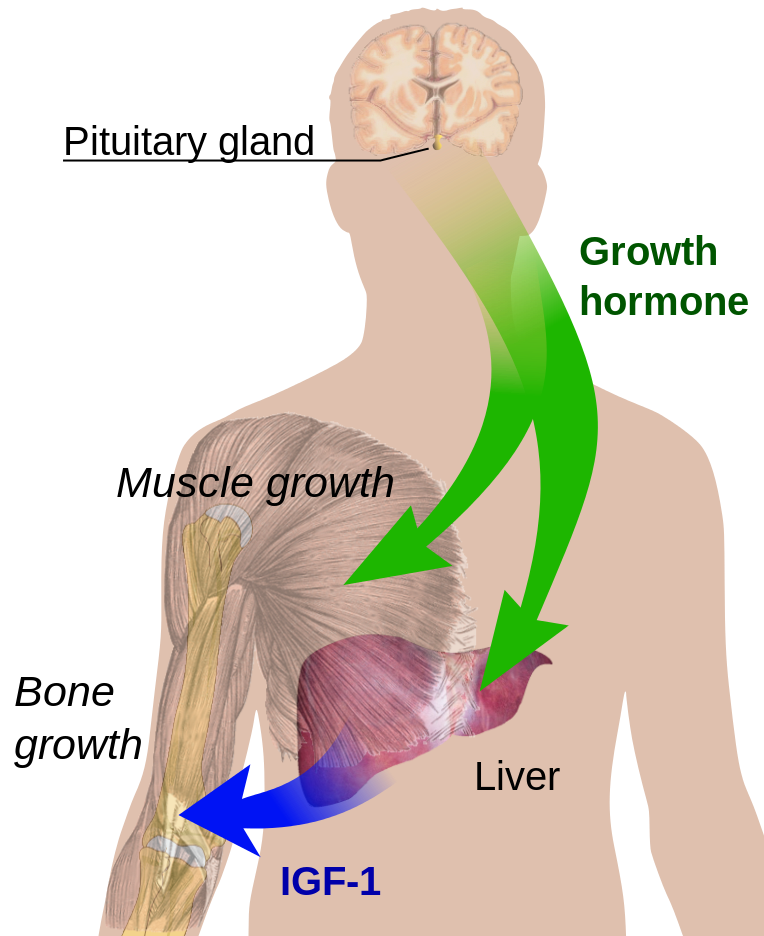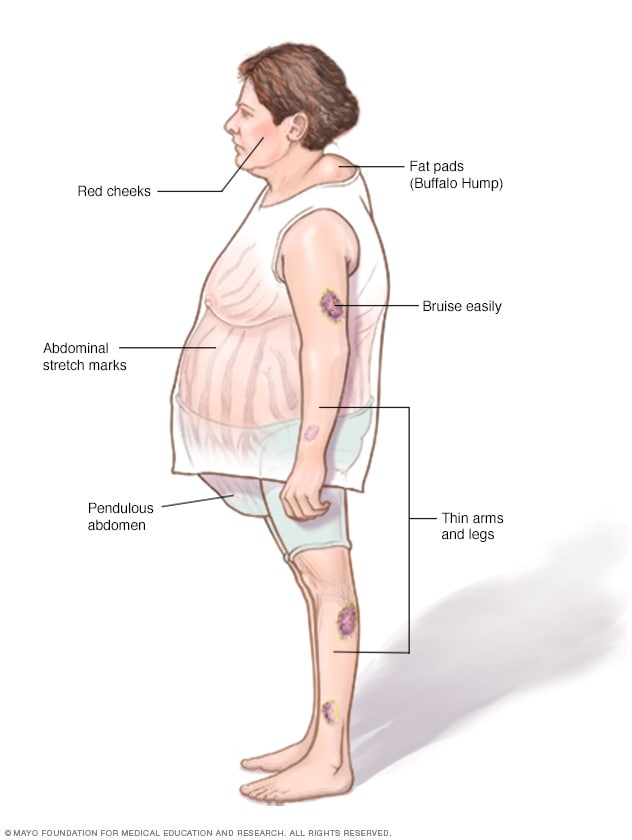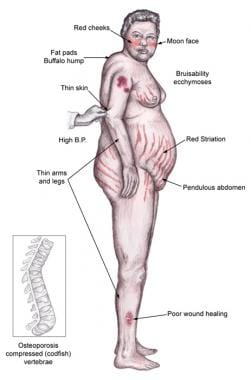HIPOFISE
Informaçoes gerais
Directorios
Textos
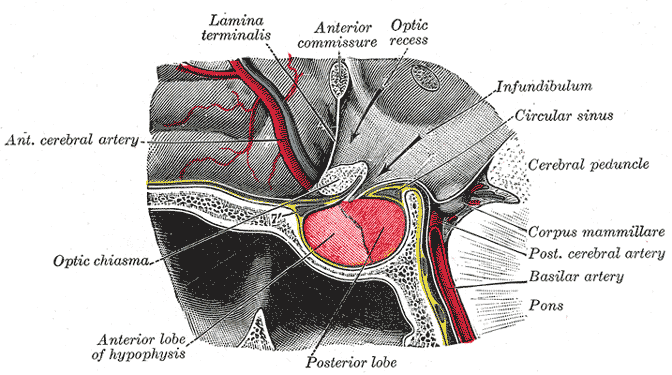

Lobo posterior da
hipofise
Fisiologia da
hipofise
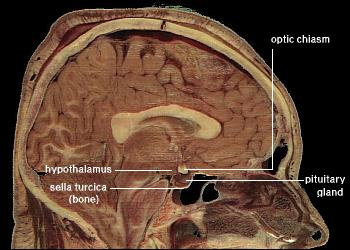

Hormonas da hipofise
Hormone
released
|
Main
target
|
Function
|
Adrenocorticotrophic
hormone (ACTH)
|
Adrenal
glands
|
Stimulates the adrenal glands to produce cortisol. Cortisol is important
in controlling your metabolism, blood sugar levels and blood pressure. It is
also an anti-inflammatory agent, and helps your body to resist certain
stresses such as bleeding or fasting.
|
Follicle-stimulating
hormone (FSH)
|
Ovaries
(women)
Testes (men) |
Stimulates the ovaries to produce an ovum (egg) for fertilisation. Also
causes an increase in the hormone oestrogen.
Stimulates the testes to produce sperm. |
Growth
hormone (GH)
|
Many different cells of the body
|
The most well-known effect in children is to increase height. In adults
and children it helps to control the amount of muscle and fat in the body. It
also helps to heal injuries and it promotes your immune system.
|
Luteinising
hormone (LH)
|
Ovaries
(women)
Testes (men) |
Triggers ovulation - the release of what will become an ovum (egg) ready
for fertilisation.
Stimulates cells in the testes to produce testosterone |
Melanocyte-stimulating
hormone (MSH)
|
Brain?
|
The exact role in humans is unknown. It may influence brain activity;
when too much is present, it may cause darkening of the skin.
|
Prolactin
|
Breasts
|
Together with other hormones, prolactin stimulates the breasts to produce
milk.
It is also found in women who aren’t pregnant. Men also have prolactin, but its function is not understood well. |
Thyroid-stimulating
hormone (TSH)
|
Thyroid
gland
|
TSH stimulates the thyroid gland to produce its own hormones,
triiodothyronine (T3) and thyroxine (T4).
These hormones help to control many bodily functions, including heart rate, temperature and metabolism. |
The posterior pituitary
makes and releases just two hormones
|
||||
Hormone
released
|
Main
target
|
Function
|
||
Antidiuretic
hormone (ADH)
|
Kidneys
|
Decreases urine production. (It causes more water filtered by the kidneys
to be returned to the blood. This decreases the amount of urine.)
ADH also causes a rise in blood pressure. |
||
Oxytocin
|
Breasts
and uterus
|
Stimulates contraction of the uterus (womb) during childbirth. Helps
breasts to release milk.
|
||
ACTH

ADH ou hormona antidiuretica ou vasopressina( Lobo
posterior)
Hormona do crescimento ( somatropina ou GH)
FSH ( Hormona estimulante dos foliculos)
LH( hormona luteinizante)

MSH ( hormona melanotropica ou estimuladora dos melanocitos)
Ocitocina (Lobo posterior)
Prolactina

~
TSH ( hormona estimulante da tiroide)



Informação especializada
Acromegalia
https://en.wikipedia.org/wiki/Acromegaly
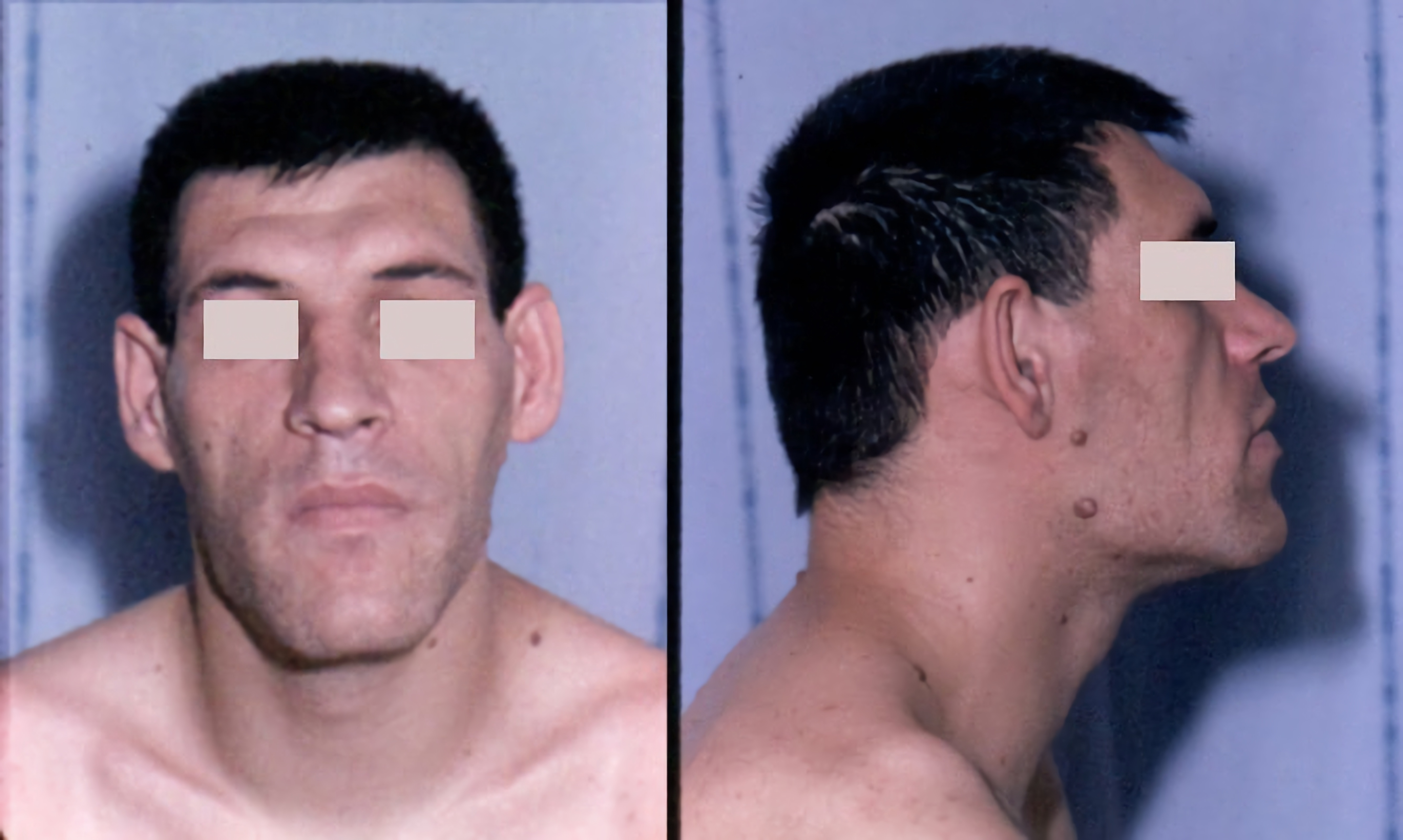
Facial aspect of a patient with acromegaly. The nose is widened and thickened, the cheekbones are obvious, the forehead bulges, the lips are thick and the facial lines are marked. The forehead and overlying skin is thickened, sometimes leading to frontal bossing.
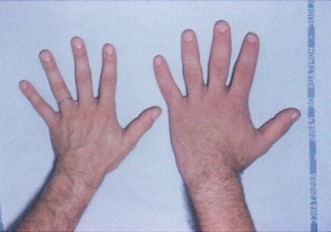
Facial aspect of a patient with acromegaly. The nose is widened and thickened, the cheekbones are obvious, the forehead bulges, the lips are thick and the facial lines are marked. The forehead and overlying skin is thickened, sometimes leading to frontal bossing.
Compared with the hand of a typical person (left), the
hand of a patient with acromegaly (right) is enlarged, with fingers that are
widened, thickened and stubby, and with thicker soft tissue

Lower jaw showing the classic spacing of teeth due to
acromegaly
http://www.niddk.nih.gov/health-information/health-topics/endocrine/acromegaly/Pages/fact-sheet.aspx
Adenoma hipofisario
Carcinomas da hipofise
http://www.myvmc.com/diseases/pituitary-gland-cancer-carcinoma-of-the-pituitary-gland/
Cirurgia da hipofise
Cirurgia da hipofise
Craneofaringeoma
Cushing
Multiple wide
striae on the abdomen of a patient with Cushing's disease



Deficiencia na hormona de crescimento
Diabetes insipida
Galactorreia
Gigantismo
Enlargement of the feet due to pituitary
hyperfunction
Hiperprolactinemia
Hipopituitarism
Kallmann
Lobo posterior da hipofise ectopico
Nelson
Prolactinoma
Sela vazia
Sheehan

Sindroma de secreçao inadequada de hormona
antidiuretica (SIADH)
Tratamento de substituiçao com STH
Tumores funcionantes da hipofise
Acromegalia
Cushing
Gigantismo
Prolactinoma
Tumor estimulante sa TSH
Tumores não funcionantes da hipofise
Adenoma da hipofise
Craneofaringeoma
Tumor estimulante da TSH tirotropinoma)
Turner


